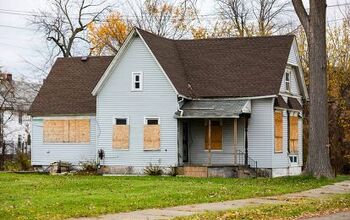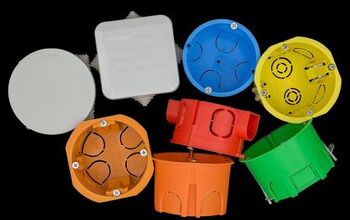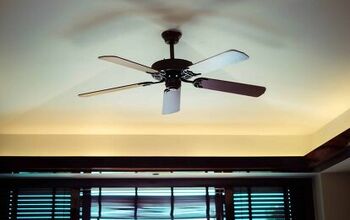How To Dispose Of A Dehumidifier (Here's What You Can Do)

Dehumidifiers are popular appliances in many homes, especially in areas where damp conditions can pose mold problems. These appliances range from small room-sized units to whole-house dehumidifiers that are part of the HVAC system. When a dehumidifier breaks, how should you dispose of a dehumidifier safely and legally?
To dispose of a dehumidifier, call your local hazardous waste facility to see if they accept them. Before recycling a dehumidifier, a certified technician must remove the refrigerant and oils from the system. Your local waste management department is the best source of information about rules and regulations in your community.
Disposing of appliances such as dehumidifiers poses many challenges. In most states, there are rules and regulations about who can remove hazardous material from appliances. Disposing of your dead dehumidifier may be as easy as calling your local waster handler and scheduling a pickup. Smaller cities and towns are more challenging.
Do You Need a Dumpster Rental Service?
Get free, zero-commitment quotes from pro contractors near you.

What Is Dangerous About My Old Dehumidifier?
Dehumidifiers, like refrigerators and air conditioners, remove moisture from the air by cooling. A compressor drives the system that chills the air to remove the moisture.
The EPA classifies the refrigerant gas as a hazardous substance. Only a trained and certified technician can safely remove the refrigerant from the system.
Also, some states place tighter controls on many other components of a dehumidifier. California has much stricter controls. The capacitors in the electrical system of dehumidifiers, refrigerators, and air conditioners are considered hazardous waste in California.
When properly used and contained in an appliance, these substances are perfectly safe. The problem occurs when these materials escape the system and enter the environment.
Steps To Dispose Of A Dehumidifier
- First, call your local hazardous waste facility and ask if they accept dehumidifiers. Bring the dehumidifier to them if they say yes. However, the odds are good that the answer will be no.
- If they don’t accept dehumidifiers, call the local sanitation department and schedule a pickup. Or, you may need to schedule a time for someone to come out and remove the Freon. There might be a small cost for this service.
- You then will likely need to set it out at your curb the night before the appointment. The facility will either come to pick it up or drain it. If they drain it, they will tag it so you know.
- Once the dehumidifier is tagged, you can leave it out for regular trash pickup. Or, in some areas, you might need to recycle it. Check with your local recycling facility to determine if this is the case where you live.
What Are My Options To Dispose Of A Dehumidifier?
You have several options. Some of these options may not be available in your area.
The best source of information is from the waste management department of your city or county. Contact the customer service department for more detailed information about your area.
Local Or Private Waste Disposal Services
In many larger cities and counties, the garbage disposal is a governmental service with programs to handle appliances like dehumidifiers. Most of these government programs are part of a larger recycling operation.
These programs intend to reduce the amount of material going into municipal landfills. In most cases where the local government operates these programs, the service is free.
Some municipalities, especially smaller towns and cities contract the garbage service to private companies. These private companies may or may not provide assistance to dispose of appliances like dehumidifiers and refrigerators.
Many times, the private waste management service will handle a broken dehumidifier for a separate charge. Contact the service that handles your solid waste for more information.
Appliance Stores Might Dispose Of A Dehumidifier
Some appliance stores and retailers will dispose of old appliances if you purchase a replacement. If you intend to replace your broken or aging dehumidifier, ask about disposal services when the new appliance is delivered.
Don’t be surprised if the retailer imposes a fee for disposing of old dehumidifiers. The task of removing the refrigerant and other components is costly.
Not only is there time involved, but the job requires specialized equipment and training. Furthermore, the retailer probably must pay another company to dispose of hazardous waste.
Bounty Programs For Disposing Of A Dehumidifier
In some areas of the country, large utility companies offer bounty programs or rebate programs. Contact your local electrical utility about programs in your area.
However, there may be restrictions on the program. The electric utility company can provide you with the details of any available programs in your area.
Recycling Centers
Many recycling centers will accept working or non-working dehumidifiers. Some recycling centers may impose a fee to accept the dehumidifier. Unfortunately, most recycling centers require you to drop the appliance off and don’t offer pick-up services.
Check With Your Plumber Or HVAC Service Technician To See If They Will Dispose Of A Dehumidifier
Many plumbers and most HVAC technicians are certified and licensed to handle refrigerant removal. If the appliance is portable, the plumber or HVAC technician may do a pick-up and handle the disposal for a small fee.
If you are replacing a whole house dehumidifier, be sure to ask if the job includes the removal and disposal of the old unit. You don’t want to see the plumber leave a decommissioned dehumidifier.
Sell Or Donate A Working Dehumidifier
If the unit is still operating, consider donating the working appliance to a local charity. You can benefit in several ways from this approach. For example, if the charity is a 501c (3) organization, you can get a tax benefit for donating.
There may be a market in your area for used appliances that are still operating. Therefore, advertising your appliance on social media or through a local newspaper might be an option. Additionally, some thrift stores will purchase used items for resale.
Disposing Of A Dehumidifier: A Lot Depends On Where You Live
Where you live can make a huge difference in how hard or easy it is to dispose of a non-working dehumidifier or any other appliance. Some states regulate appliance disposal heavily while others take a more minimalist approach.
The EPA classifies refrigerants as an environmental hazard. Every state in the union must have the means to regulate and control the removal and disposal of appliances that contain refrigerants.
In most states, this requirement involves certification or licensing of individuals or companies that perform refrigerant removal and disposal. Many states meet the minimum requirements and stop there.
For example, by and large, Arizona follows the EPA guidelines with no other regulations or requirements.
Pennsylvania is another state with broad laws governing the disposal of appliances. Pennsylvania prohibits most electronics from being sent to the landfill. Most new appliances contain enough circuit boards and controls to qualify for this exclusion.
Not only must the refrigerants and oils in a dehumidifier be removed, the circuit boards that control the unit must also be removed and recycled in a controlled manner. You can find information about appliance disposal in Pennsylvania at this link.
Other states have stricter guidelines. Here are a few examples.
California And Missouri
California has some of the strictest environmental rules and regulations in the nation. Almost everything falls into some regulatory situation. The detail that California has included in its regulatory statutes is incredible.
Even appliances that don’t contain refrigerants fall under many of California’s controlled toxic waste regulations. For more information about California’s rules and regulations , you can access a PDF at this link.
Missouri bans major appliances in its landfills. There is some question of whether dehumidifiers fall into this category, but the safe assumption is that they do. The Missouri Department of Natural Resources controls solid waste management programs in the state. While not as detailed as some other states, Missouri tightly regulates the disposal of refrigerants and appliances.
More information about Missouri regulations can be found at the Missouri Department of Natural Resources website at this link.
Do You Need a Dumpster Rental Service?
Get free, zero-commitment quotes from pro contractors near you.

Related Questions
Can I remove the refrigerant from my dehumidifier myself?
In most cases, the answer is no. Removing refrigerants from old dehumidifiers requires special equipment. This equipment pumps out the old refrigerant in a controlled manner and captures it safely. This equipment is expensive and not readily available to homeowners.In many states, only a licensed technician can perform this process. Licensing makes homeowner disposal of these materials almost impossible. Many cities in Arizona have local rules and ordinances concerning appliance disposal. You should check with your local waste disposal management organization for more information.
Will it get easier to dispose of dehumidifiers and other appliances?
Appliance industry sources and waste management professionals all point to increasing regulation of refrigerant and appliance disposal across the country. As concerns for the environment rise, so does the complexity of regulations governing these materials’ disposal.As regulations and rules become stricter, the challenges of disposing of dehumidifiers and connected appliances will become harder. Recycling programs will become more important. Whether local or state governments step in to provide these services is questionable.When faced with disposing of dehumidifiers and other appliances, federal and state regulations often define the options. Many states and municipalities have programs to aid homeowners. Government-sponsored recycling programs are one solution. The private industry also helps with bounty or rebate programs.Whatever the regulatory situation, the goal is to dispose of your dehumidifiers and other appliances in an environmentally responsible way.
Related Guides

Dennis is a retired firefighter with an extensive background in construction, home improvement, and remodeling. He worked in the trades part-time while serving as an active firefighter. On his retirement, he started a remodeling and home repair business, which he ran for several years.
More by Dennis Howard



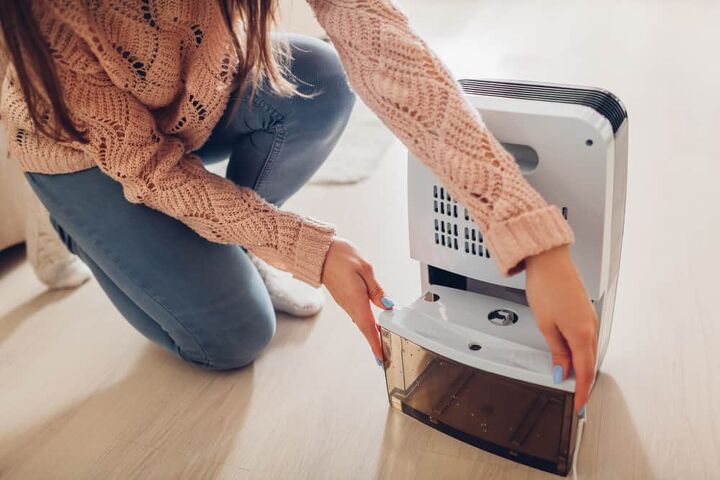






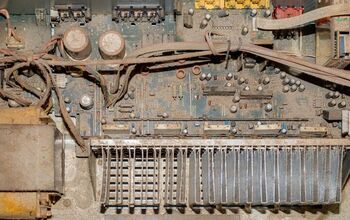
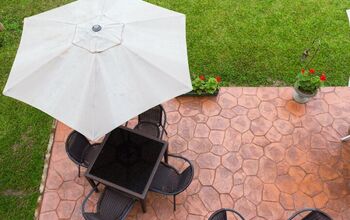
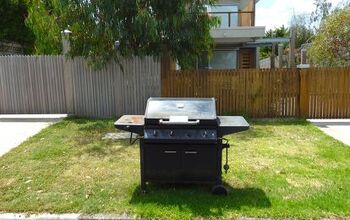

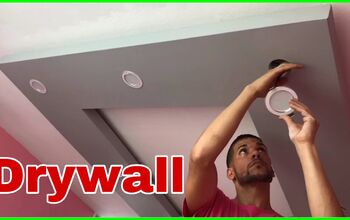




![How To Reset A Whirlpool Cabrio Washer [In 5 Easy Steps!]](https://cdn-fastly.upgradedhome.com/media/2023/07/31/9076531/how-to-reset-a-whirlpool-cabrio-washer-in-5-easy-steps.jpg?size=350x220)


